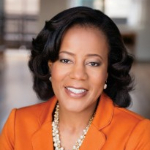 The industry event anyone in secured finance attends now celebrates its 77th year. SFNet is set to make the Arizona convention a memorable one. Click below to register.
The industry event anyone in secured finance attends now celebrates its 77th year. SFNet is set to make the Arizona convention a memorable one. Click below to register.

Judy Toland
Global Chief Customer & Strategy Officer, Wells Fargo Commercial Distribution Finance
Biography:
Judy Toland is the svp, global head of the customer and strategy office for Wells Fargo Commercial Distribution Finance (CDF). In this role, she is responsible for all customer and strategy activities across a $48 B inventory finance business, with 40,000 dealer and 2,000 manufacturer/distributor customers in over 60 countries. This role leads a team responsible for all strategy, new product introduction, commercial excellence, and customer experience initiatives. Prior to her current role, Judy was the chief marketing officer for CDF, which included all the responsibilities above, plus cross sell, product marketing, tradeshows and events, communications, and public relations. From 2014 to 2016, Judy was the commercial leader, electronics and appliances, for GE Capital, CDF. This P&L leadership role was responsible for originating new and retention of existing customer relationships (4,000+ dealers, $5.3B in volume).
Judy has a BS in chemical engineering from Northwestern University and a MBA in Marketing from the University of Michigan- Dearborn. She is a member of the Wells Fargo Wholesale Diversity & Inclusion Council, YMCA of Metropolitan Chicago Board of Managers, BMA Chicago and the CMO Club.
What advice would you offer to women just starting out in the industry?
I would highlight that early on, it is very important to not be in a “career hurry” to advance to larger and more expansive roles.
Early in your career is the time to cast a wide net and compile a broad list of skills and experiences that will provide a strong foundation for your future career. It is important to have experiences in varied functions (marketing, sales, risk, etc.) and in various types of roles (individual contributor, manager of people). It is also important to take the time to master critical skills necessary for your company, industry, or function. Once the expertise is developed, the bigger roles will come naturally.
What do you know now that you wish you knew in the beginning of your career?
I wish I had learned the P.I.E. Model earlier in my career. It would have helped me understand how my personal brand directly influences my career advancement. PIE is an acronym for the three critical success factors for a positive personal brand.
Performance is truly your “ticket to the game”. It is assumed, as you consider your career planning, that you are already functioning at a high level in your current role. You should secure a reputation for consistent high quality work. Your image is what you project. Your demeanor, your communication style, verbal and non-verbal. Also, things like your posture, and appearance. Exposure is the network you create and nurture. This is your internal and external network. Have your elevator speech ready, keep LinkedIn up to date, and consider creating a one-pager that captures your career profile to help shape the buzz about you. Again, it has to be an authentic representation of your values and who you are, in order to stick. All three of these items encapsulate your personal brand. If you have positive marks on all three, the sky is the limit for your career!
What kind of role has mentoring and/or sponsorship played in your career?
Mentoring and sponsorship have been and remain critical to my ongoing success. And these two topics are uniquely different.
First, for the last 15 years, I have had a mentor “board of directors”. This group of 3-5 people have provided me invaluable mentorship and career advice. This group is a diverse collection of former bosses, in and outside financial services, peers, and former directs. I also try to be conscious about having male and female mentors of various career stages on my board. The advice and counsel this group provides is truly invaluable. I leverage their counsel on everything from big career changes, to how to handle a challenging business situation. It is critical to have honest, transparent, and consistent coaching to ensure you are always learning, getting better, and growing.
Sponsors are those that advocate for you when you are not in the room, those that will hire you or advocate others to hire you. Sponsors are critical for career advancement, especially as your career progresses to more senior roles. In my experience, I have found that you can only “earn” your sponsors through strong on the job performance, often through direct management or other exposure. You can’t ask or solicit for a sponsor, since a critical component of sponsorship is putting one’s reputation on the line for someone else.
What do you think the industry could do to attract and retain the best and the brightest today?
Our industry is challenging, dynamic, and full of varied opportunities. The key to retaining our best and brightest is maintaining a clear focus on why employees stay at a company or in a particular industry. Employees stay when they have the following 4 critical items in their roles:
1.) Exciting and challenging work
2.) Career growth and development opportunities
3.) Supportive direct management and leadership
4.) Fair pay and timely recognition – feeling of being valued for the work one does.
77th Annual Convention
 The industry event anyone in secured finance attends now celebrates its 77th year. SFNet is set to make the Arizona convention a memorable one. Click below to register.
The industry event anyone in secured finance attends now celebrates its 77th year. SFNet is set to make the Arizona convention a memorable one. Click below to register.
